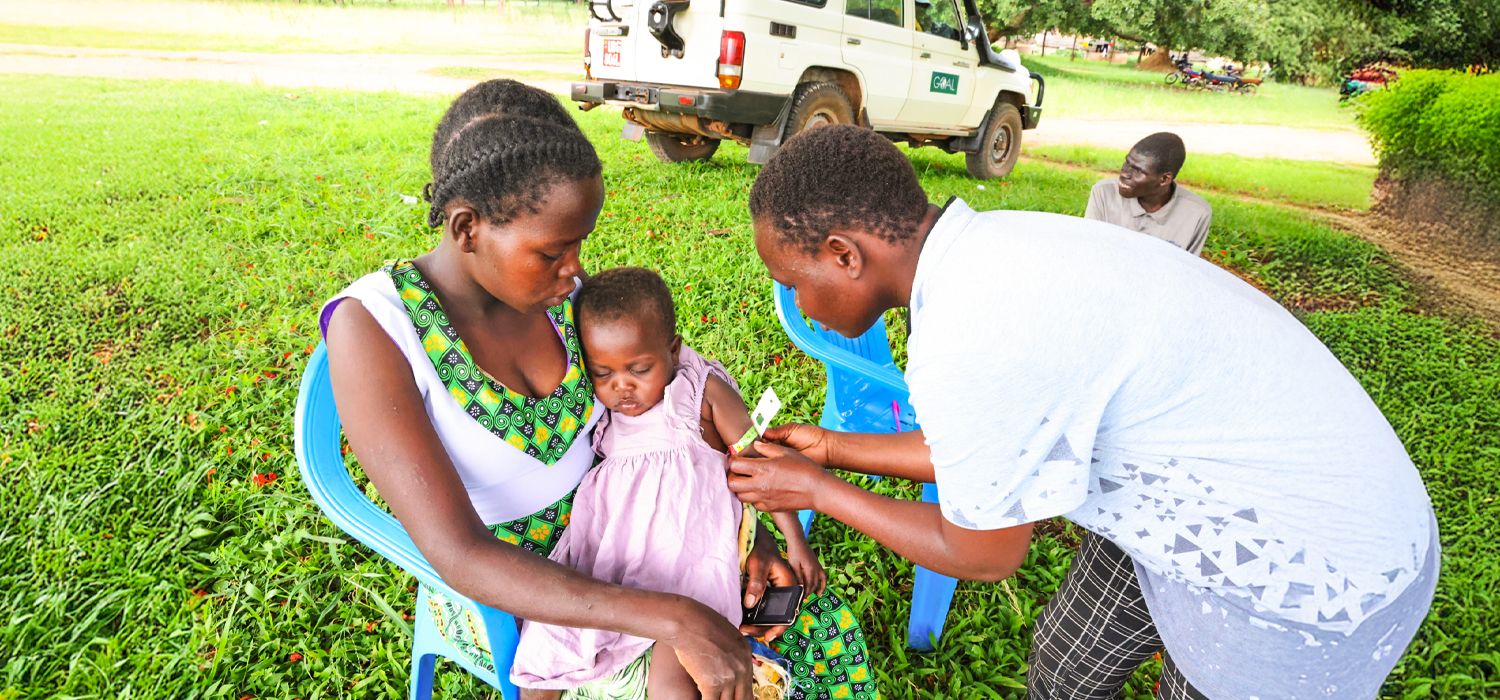 Stories
Stories
October 3, 2025 • 3 min read
In Agago District, Uganda, Betty Akot is leading a quiet revolution. Once known only as a devoted mother, Betty’s journey took a transformative turn when she became a Female Nutrition Impact and Positive Practice (NIPP) Volunteer through GOAL Uganda’s programme, supported by Irish Aid. With compassion, practical knowledge, and relentless follow-up, Betty has become a trusted nutrition and health advocate, saving the lives of children who were diagnosed with severe malnutrition during a home visit.
In Uganda, nearly one in three children under five is stunted due to chronic undernutrition. Rural areas, such as Agago District, face additional challenges, including food insecurity, limited access to health services, and poor sanitation. GOAL Uganda’s NIPP programme addresses these challenges through community-led behavior change. Local volunteers, trained in nutrition, hygiene, and caregiving, lead small learning circles and follow-up visits to promote long-term improvements in family health.
From Volunteer to Village champion
Betty Akot Ayat, a 36-year-old mother of four, works as a small-scale farmer. When her community nominated her to become a Female NIPP Volunteer, Betty accepted the role with enthusiasm. Trained by GOAL and supported by a local partner, PCCO, she learned how to turn everyday conversations into lessons on nutrition, hygiene, farming, and care.
Betty followed the NIPP principle of practical education; as such, she wasn’t just teaching, she was demonstrating. Betty trained 15 female participants through her community NIPP circle. She followed up on them every two weeks at home, helping families build fuel-efficient stoves, adhere to practices such as immunization, exclusive breastfeeding, antenatal and postnatal care, malaria prevention, practice optimal feeding through the preparation of nutritionally diverse meals (with local ingredients), observe good sanitation and hygiene practices, plus encourage behaviors that promote positive health and nutrition outcomes.
What NIPP Circles Really Do
GOAL’s NIPP circles focus on practical, community-driven change. These sessions are held separately for women, men and local leaders to create safe spaces for open discussion and learning. The goal is to support lasting changes in behaviour that help improve health and nutrition for families.
Malnutrition isn’t caused by just one thing; it’s often the result of several challenges happening at the same time. That’s why families need support in many areas, including breastfeeding, hygiene and sanitation, growing nutrient-rich foods, preparing balanced meals, and accessing basic health care.
This approach is hands-on, adaptable and designed to fit into everyday life. It helps parents take better care of their children, enabling them to grow up strong and healthy.

Identifying and Responding to Malnutrition
In early 2024, during a routine household visit, Betty met a young mother with a visibly underweight child. She used a Mid-Upper Arm Circumference (MUAC) tape to measure the child’s nutritional status, which showed a reading of red, indicating Severe Acute Malnutrition (SAM). The mother asked her, “What can I do to save my child?” Betty responded by arranging a referral to the health center with support from the Village Health Team. She continued to provide regular follow-ups, offering encouragement and guidance. Over time, the child’s health improved. The mother planted a small garden and began preparing millet porridge and milk for her child, simple but nutrient-rich meals that made a visible difference.
Building Trust and Expanding Influence
Betty’s own home reflects the changes she promotes. She grows a variety of vegetables, uses a fuel-efficient stove she built herself, and maintains a clean compound with a dish rack and a handwashing station. Her husband supports her work, and other mothers in the village now come to her not just for advice but to observe and learn. When a government programme needed local facilitators, Betty was among those selected. Today, international organizations also call upon her to train and mobilize communities, proof of the impact a well-supported community volunteer can have.

